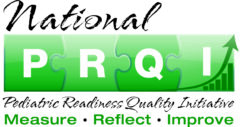
These domains of quality metrics represent the most common complaints presenting to the ED. children with these clinical conditions can range from easily manageable to critically ill presentations. Support in identifying and optimizing care is the goal of these metrics.
Meaningful quality measures of pediatric emergency care are needed to monitor the care delivered in EDs. Using a modified Delphi process, more than 25 professional organizations and subject matter experts developed a menu of measures that are relevant, actionable and linked to improved outcomes. These measures address all aspects of an ED visit – assessment, diagnostics, interventions, disposition – to optimize care for a critically ill or injured child.
Pediatric Assessment Metrics
Children often lack the ability to verbalize their symptoms and the range of their vitals can be drastically different from adults. Thus, the monitoring of complete vitals of pediatric patients can be a reliable way to evaluate their condition upon arrival as well as identify changes during their stay.
Pediatric Interfacility Transfer Metrics
Caring for a child can tap ED staff as they balance optimal patient care and available resources. Often strategies to recognize clinical needs or use available resources are not optimized. Paring down transfers of patients to only those necessitated by lack of resources decreases the burden on patients, their families, and local EMS assets.
Management of Pediatric Blunt Head Trauma
Following evidence-based guidelines for the treatment of a blunt head trauma decreases the chance of missing a clinically significant brain injury, unnecessary exposure to radiation, and avoidable transfer.
Management of Pediatric Seizures
Following evidence-based guidelines for the treatment of seizures ensures that the correct diagnostic tests are used for pediatric patients, and that those patients do not undergo unnecessary procedures.
Management of Pediatric Respiratory Complaints
By intervening in respiratory distress quickly and adhering to evidence-based guidelines, durations of symptoms and treatment will be shorter, and unnecessary antibiotics and x-rays can be avoided.
Management of Pediatric Vomiting
The use of antiemetics allows for oral rehydration instead of more invasive treatments, which can be painful for the patient and increase the likelihood of transfer.
Management of Pediatric Suicidality
The implementation of standardized suicide screenings in addition to evidence-based guidelines for management will allow for more effective use of behavioral health consultations, hospital admission, and patient safety plans.
